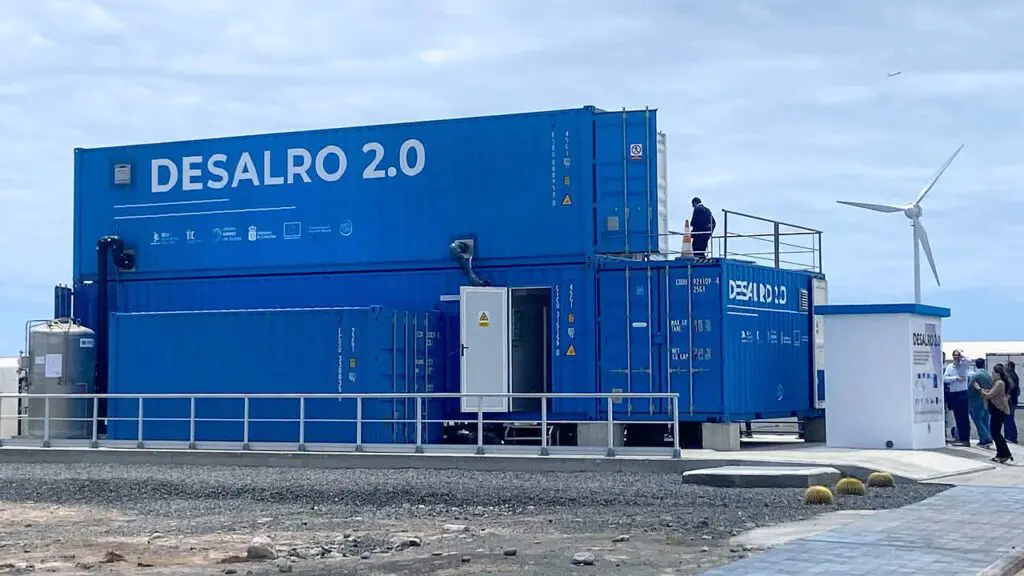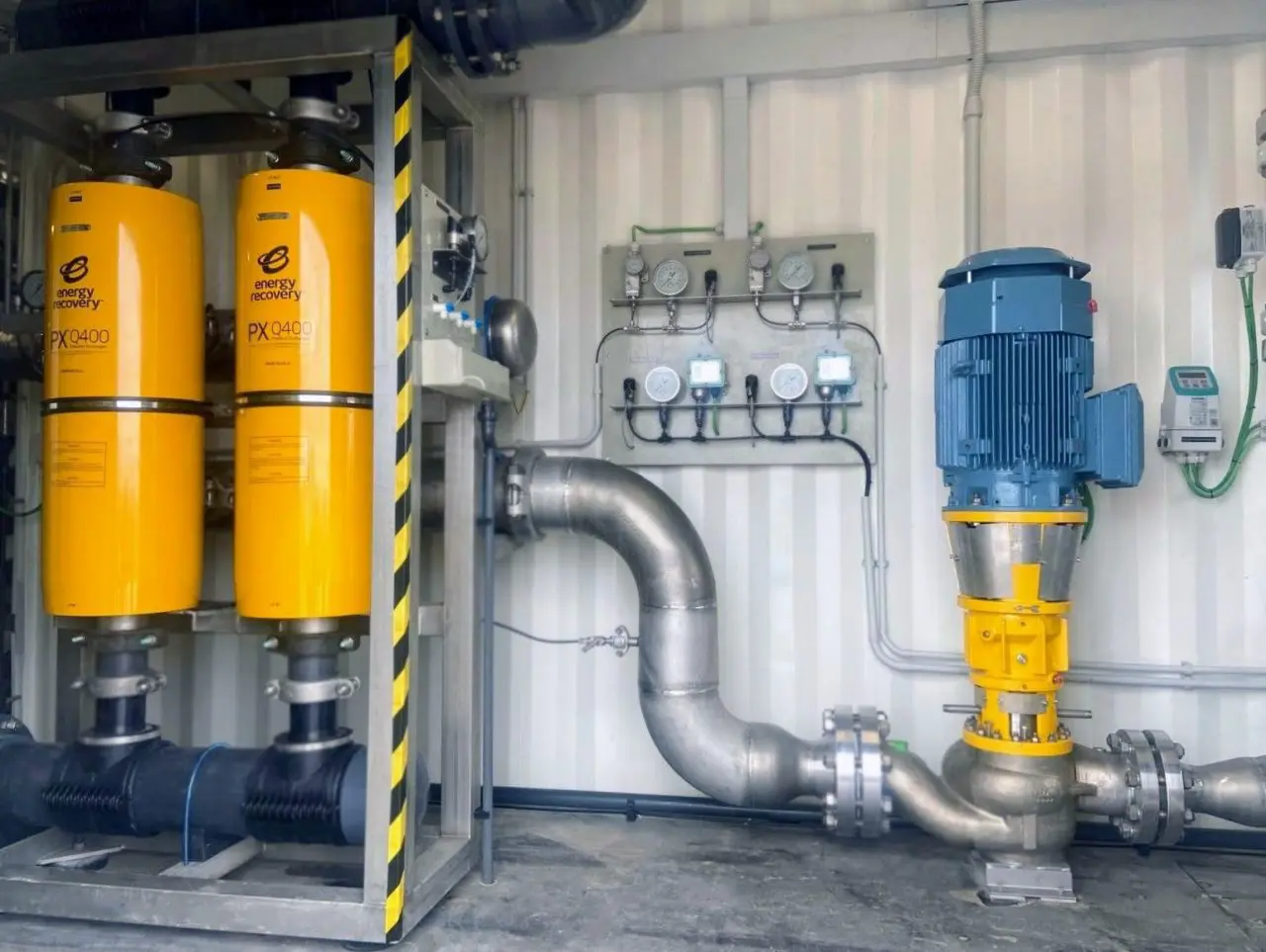The Challenge

Across the globe, the challenge of securing clean water while reducing energy consumption has pushed the boundaries of desalination technology. Spain’s Canary Islands Institute of Technology (ITC) set out to confront this challenge head-on with the launch of the DESALRO 2.0 project—a bold initiative designed to redefine energy efficiency in seawater reverse osmosis (SWRO).
The goal was as ambitious as it was clear: develop a modular, scalable desalination system that could produce 2,500 cubic meters of potable water per day with a Specific Energy Consumption (SEC) below 2 kWh/m³ — a significant achievement in energy efficiency.
But this wasn’t just a laboratory test. The plant would operate under real-world conditions typical of the Canary Islands, including seawater with 37 g/L salinity and it had to do so inside a highly compact footprint—two 40-foot shipping containers, designed for rapid deployment and replication. Meeting this combination of efficiency, scalability, and space constraints would require the use of the most advanced technologies available.
